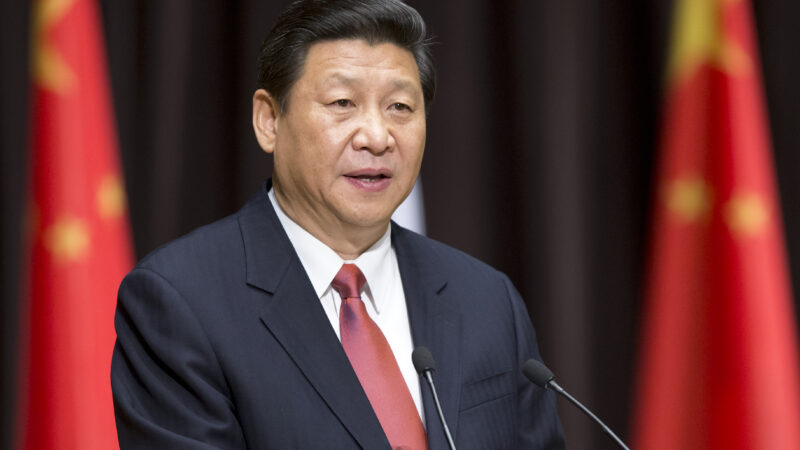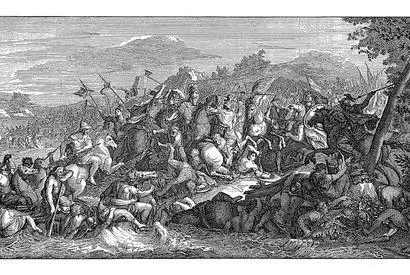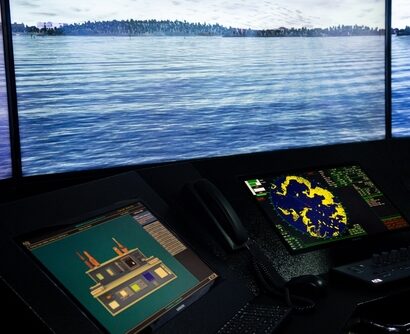Abstract: This article deals with the effect of systemic stimulus as an independent variable, the strategic culture dominated by fear as an intervening variable, the resulting domestic policies as a dependent variable, and how these policies can endanger the state’s survival. The measures taken by China in recent years by gradually closing the country to foreign ideas, limiting direct contact with foreigners, and forbidding most of the travels of their nationals abroad seem to have two powerful explanations by analyzing the international stimulus from the great-powers competition and the historical, deep-rooted cultural fear to the effects of the free interaction with the rest of the world. The result can undermine the ability of the country to become a regional hegemon in the medium and long-term, affecting its own survival.
Problem statement: Is the internal behavior of PR of China conducive to fulfilling the state’s survival maxim of Mearsheimer’s realism by becoming a regional hegemon? Or, on the contrary, will these policies negatively affect the achievement of its objectives in international matters?
Bottom-line-up-front: The educational and border policies of the Chinese Administration in recent years may affect its ability to compete for greater shares of power at the international level and may even harm the state’s survival in the long term.
So what?: In a scenario of growing competition between superpowers and an absence of clear world leadership, the People’s Republic of China has decided to proceed to physical and cultural isolation from the rest of the world, which is not in line with its interests as a state. Internal reflection would have to combine international stimuli with internal policies that did not affect its proposal for world leadership.
International Stimulus, Strategic Culture and Resulting Domestic Policies
Download PDF • 1.11MB
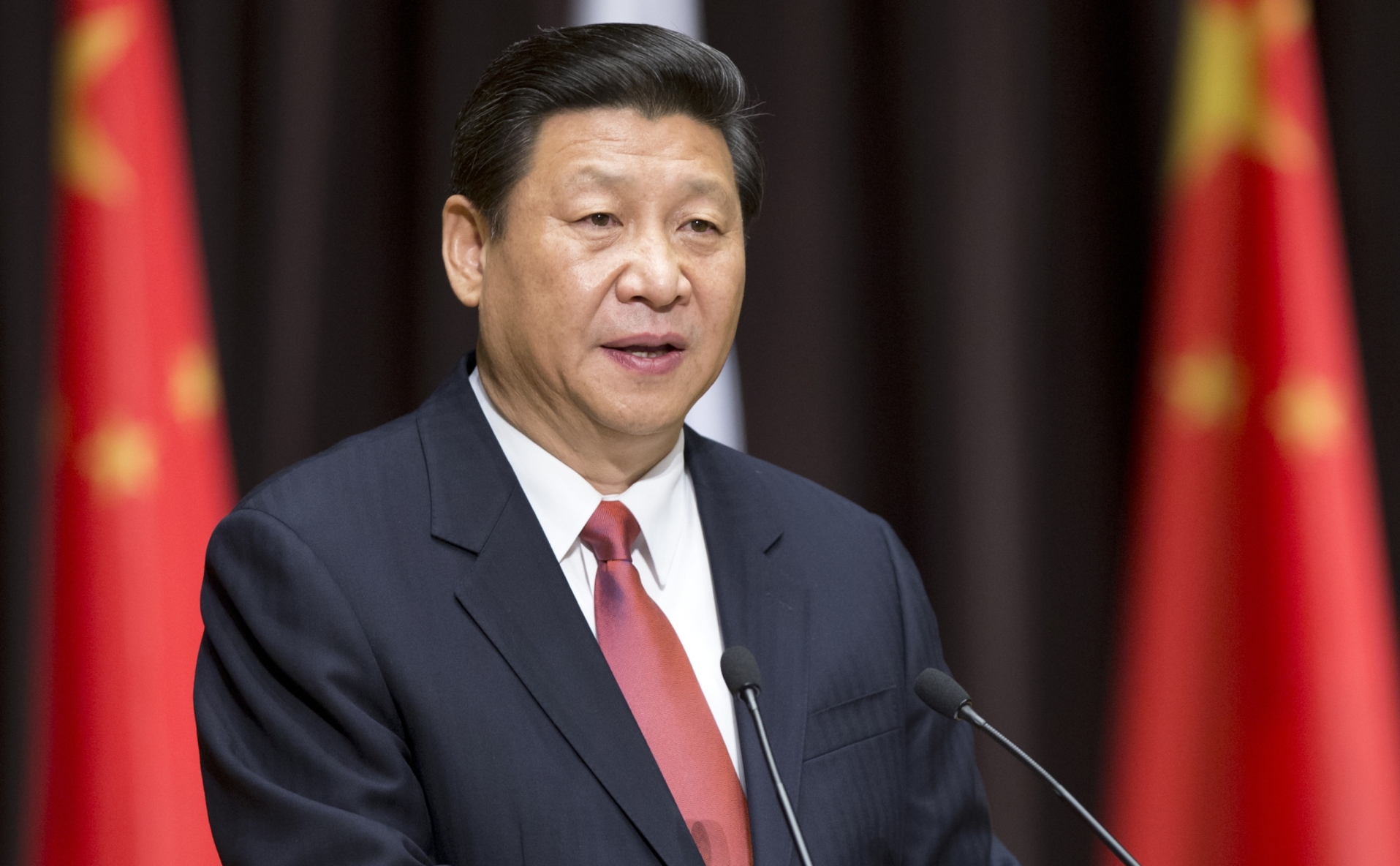
Source: shutterstock.com/Kaliva
Rational Behavior and Fear as a Response Shaping Strategic Culture
Within offensive realism, when talking about the rational behavior of states, it is understood that they always act rationally and think fundamentally about their survival by seeking to increase their relative power, regardless of internal preferences: “domestic political calculations are not likely to undermine sound strategic thinking”.[1]
This premise does not include the internal debates and frictions considered by neoclassical realism, like the actors’ preferences that make up the state[2], the leaders’ misperceptions due to incomplete information,[3] or the interests of domestic power groups clashing for more power within the state[4]. However, one should not ignore fear as a rational response[5] since the state can look for the best moment to achieve its objectives, even if it loses power in favor of others in the short term. Hence, the rational fear of losing more in the long term also leads to moderation[6].
On the other hand, fear is a human reaction linked to the survival instinct that can manifest itself in social groups and, therefore, in states[7]. Recognition of the presence of fear in states goes back a long way, as Thucydides already described: “What made war inevitable was the growth of Athenian power and the fear which this caused in Sparta.”[8]
Fear is a rational response of a state to an external stimulus perceived as a threat to its survival. That survival for the current PR of China means at least, the regional hegemony granted by a strong economy, technological leadership, and free movement of citizens in and out of its borders among others which, all together, allows to deploy a first-class army, ensure a considerable number of world champions in the business realm, and enjoy a widespread recognition from individuals worldwide about the attractive of Chinese culture or its societal proposals.
Regional hegemony granted by a strong economy, technological leadership, and free movement of citizens in and out of its borders among others which, all together, allows to deploy a first-class army, ensure a considerable number of world champions in the business realm, and enjoy a widespread recognition from individuals worldwide about the attractive of Chinese culture or its societal proposals.
That fear is shaped through the historical events the state has faced conforming to a unique strategic culture, a certain way in which a state perceives the systemic stimuli constraining “a state’s behavior and freedom of action by defining what is acceptable and unacceptable strategic choices” which is an intervening variable on the formation of state’s policies[9] and can even jeopardize its primary security interests[10].
State’s Survival, Power, and Smart Power
Assuming the basic thesis of Mearsheimer, the underlying question or ultima ratio is found in the maximum value of the survival of the states and how they act in favor of achieving it by competing with each other and acting rationally. That survival means a permanent search to increase relative power, so we witness permanent superpowers’ competition for power[11], but what power?
Power is a concept linked to human relations and is summed up in the ability to impose one’s will on another[12]. The capacity we have for influence (over others) or for autonomy (being able to resist the influence of others) will define the degree of power we have[13].
Morgenthau described power as the addition of different factors: geography, natural resources, industrial capacity, military preparedness, population, national character, national morale, and quality of diplomacy. Nevertheless, in the past few decades, “the power of nations has become more elusive”[14], and “calculations of power are more difficult and misleading than they once were”[15]. Although classical realists see power as an attribute, a sort of accumulation of resources or material capabilities, the will to exercise own power[16] seems to be crucial.
Morgenthau described power as the addition of different factors: geography, natural resources, industrial capacity, military preparedness, population, national character, national morale, and quality of diplomacy.
This, translated to the international realm, shows us a group of states in permanent competition to increase their absolute and relative power. And all this in an anarchic system where no supranational body can limit the action of the states. It seems evident that there are sufficient examples not to discuss realists’ doctrines when the security of states is at stake[17].
Dissecting the concept of power half a century ago, Lukes brings evidence about the three dimensions of power[18], linked with the distinction made by Joseph Nye of two different types of power: hard and soft[19] and the smart put into practice combination of both, labeled as Smart Power, where material capabilities play a role together with the ability to directly command changes in the behavior of another, to control and set agendas and to establish and shape preferences[20]. Here the ability to make our own culture, ideology and values attractive to others is crucial, and for that, a certain degree of fluent interaction or penetration is needed.
Chinese Strategic Culture: From the Century of Humiliation to the Trade War and the Ukraine War
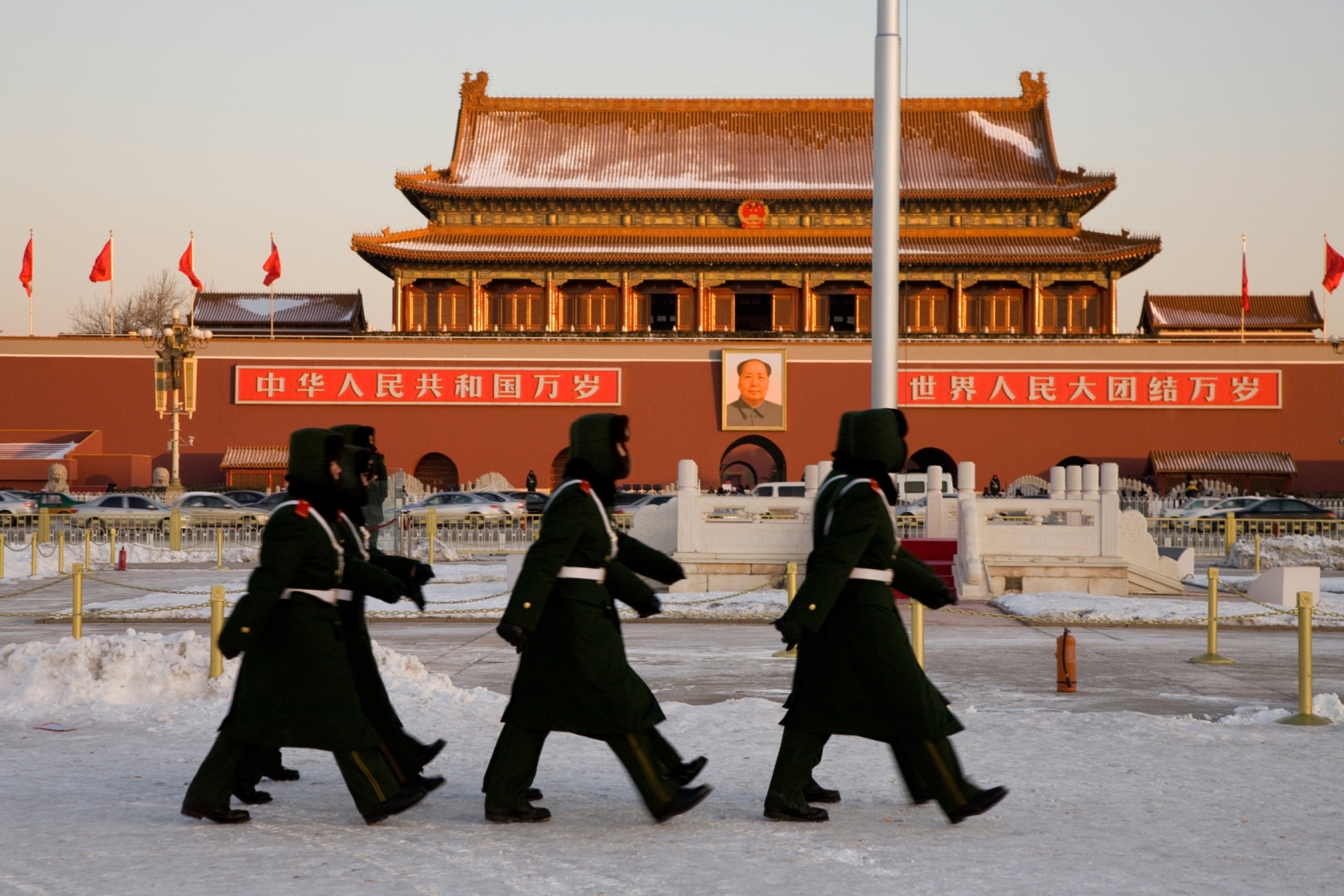
Source: shutterstock.com/vinzent369
Deep in the national mindset, the same China that went through the worst moment in its history as a Nation from the clash with the imperialist powers during the “Century of Humiliation” has become seen, in just one generation, with the ability to compete, at least, for the regional hegemony of Asia Pacific and with the option of implementing its agenda and its norms in the international realm.
After being one of the poorest countries on the planet, China is competing for the first position and is doing it just within one generation. The internally accepted perception of a peaceful rise, well-received for years not only in the Global South[21] but also in Europe[22], where it had reached a level of well-being never seen before, it was in an advantageous position until 2021[23]: it had controlled COVID, and its technology industry was still in the running.
That position makes China face, on the one hand, the reality of an international system where, despite having taken positions, gaining representation in international organizations, and having created its own space, it is conducive to it insofar as it was created in the image and likeness of the values promulgated by the US[24]. On the other hand, it faces an opponent capable of implementing different hard and soft power tools with a highly refined technique and well-structured theoretical foundations: Smart Power[25].
Confronting the US is a major issue where the scenario of confrontation is analyzed in detail, and the risk of the occurrence of an event that supposes a casus belli such as the one that justified the Iraq war is extremely difficult to manage when it comes to the Hegemon, even more so if the possibility of a false flag action is added.
US-China Great-Power Competition and the Three Dimensions of Power
Focusing on today’s picture, a more intense conflict with the US due to the war in Ukraine or even a direct armed conflict in Taiwan Strait or even the Korean Peninsula is something that China wants to avoid by showing a narrative of harmony[26].
A Russian defeat is a scenario that would leave China in a weak international position too soon[27] and pending the two issues that Washington has kept simmering for a long time, waiting for the right moment: the decades talked violation of human rights in Xinjiang and the “always imminent” military action of China Mainland on Taiwan.
The chance of a direct armed confrontation with the USA is not something new that date back to the Korean War and the from time-to-time escalating interactions along the Taiwan Strait. But suppose we focus on the recent intensification in the degree of conflict with the US. In that case, this comes from 2011 with the rebalance to Asia, made visible as (the) “Century of the American Pacific”, which was the turning point since Nixon’s visit to Mao of an always complex relationship[28].
The chance of a direct armed confrontation with the USA is not something new that date back to the Korean War and the from time-to-time escalating interactions along the Taiwan Strait.
Seen from China, that turn to the Pacific made them rethink the strategy and was the origin of the Belt and Road Initiative (BRI) and the new Chinese Grand Strategy[29], which included a greater dedication to defense matters by Beijing[30].
The rope was gradually tightened between 2018 and 2019 with the Trump administration’s Trade War culminating in a surprising agreement on January 15, 2020, days after the US execution of the Iranian supreme commander Qassem Soleimani, generating a tepid response from Beijing[31], and a few days before (January 23) the dramatic lockdown of Wuhan.
As we see recently in the case of the Ukraine War, as the hegemonic power in the Western Hemisphere, the US is implementing an agenda of sanctions and restrictions against Russia and providing direct support to Ukraine. Within the first dimension of power, we would find direct sanctions imposed by the US of financial nature on exports and imports, those aimed at specific individuals, and limitations on the mobility of people. These measures are intended to modify Russian behavior through direct threats, and their effectiveness may be questionable[32].
Although Beijing has made progress in recent years in developing a powerful army and navy capable of defending national economic and strategic interests beyond its borders by increasing its hard power, the reality is that it is in a very incipient phase if what we are talking about is an international projection[33]. The first dimension of power is, for now, a US monopoly[34].
Looking at the alliances, although China carries out joint exercises with the armies of other nations, it is not part of any international security organization. Its declared foreign presence is limited to a place in Africa and an alleged interest proclaimed for a long time by Washington to establish military bases in Pakistan, Myanmar, Sri Lanka, Indonesia, and Thailand. It is not yet capable of offering a security structure to its investments abroad through private companies as understood in the West[35].
Its declared foreign presence is limited to a place in Africa and an alleged interest proclaimed for a long time by Washington to establish military bases in Pakistan, Myanmar, Sri Lanka, Indonesia, and Thailand.
Therefore, it could be shown that Beijing’s options go through the economic sphere. However, even today, the direction they are going to take is not clear, and where their main partnership is not insignificant, although of disputed value, are the BRICS[36].
Regarding the BRICS (Brazil, Russia, India, China, South Africa), as early as 2018, Tussie wondered if that block could be considered a valid opponent to US hegemony. Although the geographical connection is not the strong point of the institution, they have at least shown an interest in generating a regulatory and institutional framework that provides stability to the world system[37]. And for the moment, it is playing a role in that direction backing Russia’s narrative and the Chinese’s suggestions for creating new regimes.
Regarding the third dimension, the monopoly of the narrative is crucial[38], and Europeans, fundamentally, are less aware of the influence they have been receiving for decades and, above all, how the US is helping to create and shape beliefs, initial preferences of its own states (and citizens)[39]. Furthermore, in terms of its ability to use the third dimension of power, it is here that Beijing sees its historical weakness projected onto the international stage[40].
Another example is how quickly the West has been able to ban all Russian media under the guise of propaganda since starting the war in Ukraine. This serves as a lesson for China, which does not have a strong apparatus deployed out of its borders and relies mostly on Russian media to spread its message abroad. Although the debate is open in Africa or large parts of Asia[41], Washington’s narrative is still the predominant one in many parts of the globe, fundamentally due to the absence of power enough media that proposes a different one. The US has been putting into practice for years a Smart Power whose latest chapter is how itself and its allies have acted in the current war in Ukraine, and which are textbook lessons for a subsequent confrontation with China.
The US has been putting into practice for years a Smart Power whose latest chapter is how itself and its allies have acted in the current war in Ukraine, and which are textbook lessons for a subsequent confrontation with China.
Keohane’s teachings on hegemony and cooperation also affect how the US deploys its Smart Power and counters emerging powers. A state’s ability to use the three dimensions of power will place it in a better position and lower the recipient’s perception that he is acting against his initial preferences[42].
Fear Within Strategic Culture and Resulting Domestic Policies that Potentially Endanger the Chinese Goals
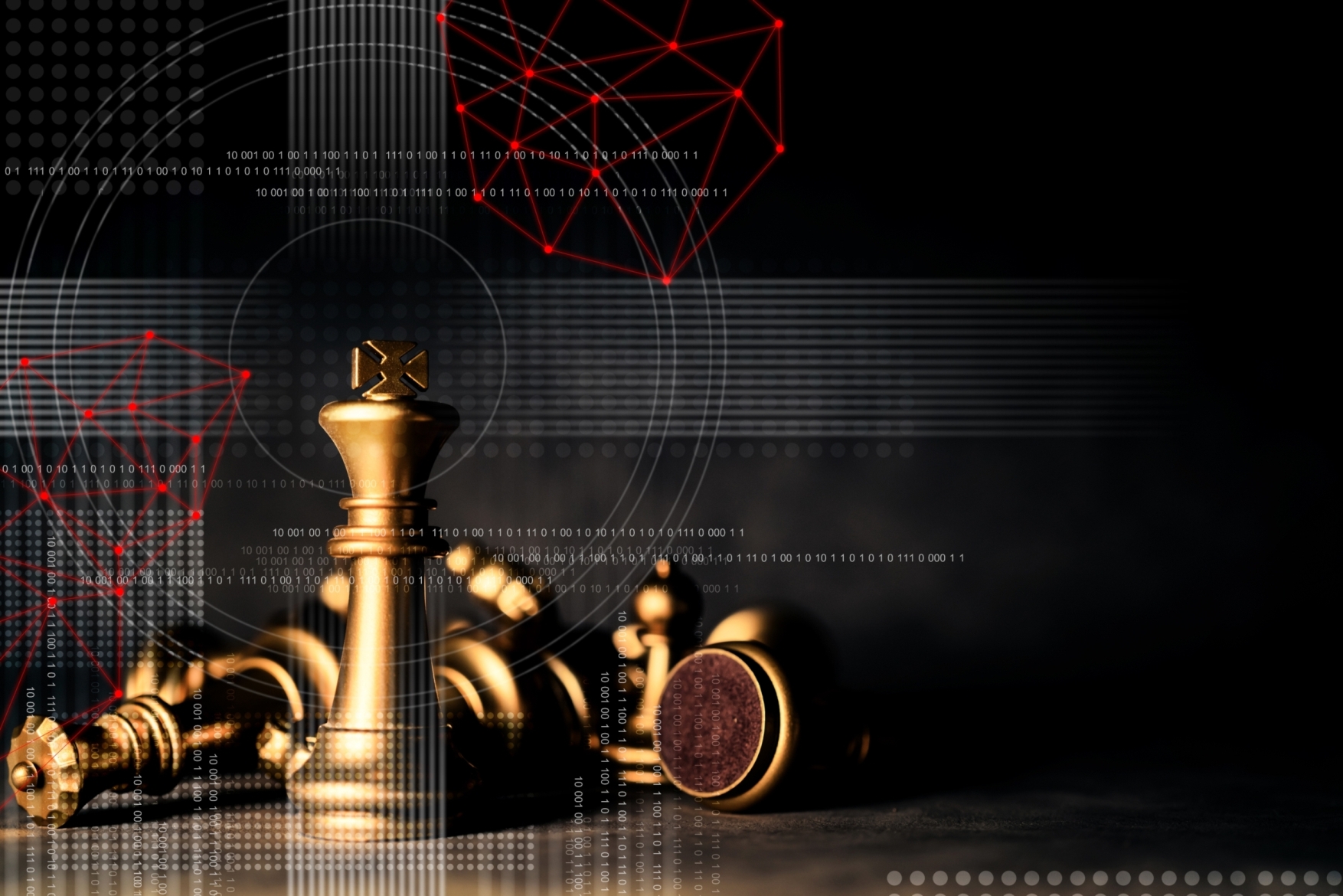
Source: shutterstock.com/WHYFRAME
As we have seen, China’s fear can be rooted historically due to the bitter interaction with the West, but, up to date, fear can arise by considering the chance of a Mutual Assurance Destruction along the clash with the US or by the simple fact of falling into the middle-income trap that could cause the country to collapse politically and socially. Analogous typologies of fear to those described by Morgenthau as US fears more than seventy years ago have implications on domestic behavior, which also has repercussions beyond its borders and finally affects China’s relations with the rest of the world.
Since 2018 some changes in internal policies related to the Chinese education system, immigration rules, and traveling abroad limitations for Chinese nationals can give us clues about how the independent variable (system stimuli) and the intervening variable (strategic culture) shape a certain policy response. Although I do not deny some other internal reasons that lead to these changes, like increasing nationalism or countering pandemic measures, those are not supported by the cost-benefit analysis of harming the national economy in the short and medium term and the long race for a regional hegemony at least.
Since 2018 some changes in internal policies related to the Chinese education system, immigration rules, and traveling abroad limitations for Chinese nationals can give us clues about how the independent variable and the intervening variable shape a certain policy response.
Since 2020, policies strongly limiting foreigners traveling to China have been added to the effects on the most wealthy foreign community within the country, Shanghai. The immigration policies that seem to focus only on short-term objectives and, as the former director of Merics, Frank N. Pieke, pointed out, do not seem to be going in the right direction.[43]
The external debate about reshoring and nearshoring based on reducing the dependency on China (mainly limiting the logistic effects) has found new support on the gradually less interest of most of the foreign community to continue living in the country. Although advocates of complex interdependence theories viewed decoupling as unlikely[44], it is not easy to link the idea of bringing investment into China without bringing the investors.
Here we can find how external stimulus (US Administration policies encouraging investors to leave China and logistic chaos) and internal policies drive together in the opposite direction to Chinese national interests by reducing the amount of technology transfer and affecting the human capital development by limiting society and staff on intercultural relations.
The recent ban on leaving China to its nationals if it is not essential is also aligned with the looking inward process and, altogether, makes present the conclusions of Karl Deutsch back in the 1950s on the prerequisites for peaceful relations and “security communities”: “…a high degree of social communication, mobility between people, economic ties, and, in general, a wide range and intensity of human transactions. spectrum.”[45]
The short and medium-term effects will have a longer negative outcome if we pay attention to the education policies since 2018: Measures related to appointment and management of foreign teachers, private education centers’ regulation enforcing them to operate under the supervision of the CCP, online classes’ regulation, the tightening of requirements for foreign teachers, the suppression of books from the West within the training curriculum. The legislation affects not only the curriculum but also more visual and innocuous aspects, such as changing the name of international private education centers.
By reducing contact with foreigners, their ideas, and their books, the measures adopted in recent years imply less contact with culture outside of Chinese culture itself. This isolation, in the short-term, contradicts the narrative abroad of adhering to globalization, but looking at the long-term, lacking training of its society and its management teams on intercultural relations will be harmful abroad in the Sino sphere, where China has a strong dependency. But is crucial to understand that there are many other ways of understanding trade relations and cultural relations.
Those measures happen to be seen aligned with the headlines of the Grand Strategy declared by President Xi during the 100th anniversary of the Chinese Communist Party celebration and appeared to be a defensive stance: “Anyone who dares try to do that (to bully China) will have their heads bashed bloody against the Great Wall of Steel forged by over 1.4 billion Chinese people”.
Anyone who dares try to do that (to bully China) will have their heads bashed bloody against the Great Wall of Steel forged by over 1.4 billion Chinese people.
At some point, these measures take us back to the time of Admiral Zheng He and the decision of the Hongxi Emperor to dismantle the fleet and focus the energy and resources within China and its immediate urgencies. That finally brought to their shores the trade relations with Portuguese, Spanish, and Dutch first and the more intrusive Anglo-Saxons later.
It must say that China has the lowest proportion of people not born in the country worldwide and, excluding the Chinese living in China by using a foreign passport, the number of Westerners can be reduced to the size of a small European city.
It still wants to be considered a champion (at least nominally) of globalization. It depends on its products being sold abroad and on the imports of raw materials, agricultural products, and food products imported from that abroad that also brings technology from flowing foreign investment.
The situation created in Shanghai is paradigmatic. The thriving city that, according to the Shanghai Master Plan 2017-2035, intended until recently to be the place in the Asia Pacific of reference (in terms of economic, financial, technological, R&D, trade, and logistics) sees how an exodus to other parts of the region is possible and how their plans can be frustrated[46].
External Dependency, Isolation, and the Total Weaponization
At the international level, China has wasted no time during these years in creating a network of institutions at the international level that allows it to confront the hegemon and its partners, where the last chapter in China’s will to increase the BRICS club. But the international economic ties make China very dependent, in very different ways, besides the US, on three geographical areas that are physically and culturally remote. Europe is a consumer market for Chinese products, a provider of technology and productive investments, and Latin America and Africa as a source of resources.
The first is already taking steps to reduce mutual dependency, while the last two have different treatments. Africa and Latin America share the discourse of regions oppressed by the imperialist powers and the vision of the Global South. However, the more direct contact with China (especially Africa) is confronting them with the aforementioned cultural difference and a fact that transcends the narrative: China thinks in Westphalian terms[47]. Perhaps this is not positive for many states. Furthermore, nationalism is the “most powerful force in the world”[48], and asymmetric relations between states are relations of power[49].
China thinks in Westphalian terms. Perhaps this is not positive for many states.
Latin America is in the Western Hemisphere, and Washington maintains its Monroe Doctrine mentality fully in force, as well as a strong influence on the Latin American news agenda. Africa, for its part, may pose a different problem. On the one hand, in the region, they already have extensive experience in relations with the Asian country. They are beginning to see how little different their business model is from other powers[50]. On the other hand, advancing terrorism can pose a problem for their investments, and the area can soon become unstable and difficult to manage.
Intercultural relations will be shown in an increasing competition scenario but also, given what is happening with Russia, confronting everything that can be weaponized[51] is a priority for China. The list could be long: outer space, supply chains, misinformation, democracy, water, and so on.
If there is a field in which China highlights its position of confrontation, it is found in the current international financial system and the pre-eminence of the USD. Discussing the supremacy of the USD is key in a conflict that will increase in intensity. It is an issue proposed by China a few days ago during the BRICS meeting and, shortly after, by Iran within the SCO, as well as escaping through the filter of the institutions still highly influenced by Washington[52].
Attention is gradually turning to the use of other currencies to settle international payments, the return to the gold standard, and other means of payment settlement while continuing to work on technological leadership and the space race to control the outer space resources. Nevertheless, what is not clear is how an economy with an intervened currency and strict capital controls can be proposed as an alternative.
Highlighting Soft Power and the Third Dimension of Power
Suppose soft power refers to the ability to “make others want the results you want” and for that. In that case, one must have the assets that produce said attraction[53]: What can Chinese capabilities and skills be in the medium term if they are affected by the fear of foreign contact?
In other words, can Beijing’s fears prevail over its options to emerge successfully from a spiral of conflict correctly defined by Graham Allison[54]? Or maybe it is simply that we are witnessing a great deception[55], and we cannot see the picture as a whole at this moment?
The process of withdrawal that Chinese society is finding around its culture and borders will not allow it to counter in the medium and long term the US capabilities within the third dimension of power. The BRICS association is a classic element of the second dimension. It remains to be seen the route that the agreement has within India, which, at this moment, balances the interest between the narrative that counteracts the dominant one in the West regarding the war in Ukraine and insists on the Chinese threat showing their support for the QUAD. This is important given the relationship between two border nations with nuclear weapons that compete in the technological and space realms and have 35% of the world’s population, but it is not decisive.
Following Keohane, China may be betting on providing the feeling of certainty and confidence that the US previously provided through “non-hegemonic cooperation”, but it would face the challenge of creating new mechanisms instead of maintaining the current ones. From what seems to be glimpsed is that, in the short and medium-term, we will witness the struggle of two blocks[56].
In China, voices already disagree with the country’s direction and are aware of the damage to its economy and its external image[57]. Confidence in international politics is something that is earned over time, and it is not easy to determine whether China will be able to recover along the path of previous successes.
Conclusion
The control of the narrative and the US capabilities regarding the use of the third dimension of power in regions on which China is dependent is a deficiency not remedied by it that, if the isolationist trend continues, will be aggravated. If what China fears is not being able to stand up to the dominant power in this regard, the direction does not seem appropriate. And it is probable that they have already realized it inside China and want to remedy it.
On the other hand, and added to its monetary and capital policy, the effects of isolationism will prevent China from postulating itself as an alternative to the US and being able to offer global public goods by leading multilateral institutions that provide the certainty and confidence that the United States provided, until now, as a hegemonic power. Without the ability of its citizens to travel freely and to make frequent contact with other cultures, regions such as Latin America or Africa can become hostile scenarios for Chinese interests. This hostility can emanate from the citizenry.
Without the ability of its citizens to travel freely and to make frequent contact with other cultures, regions such as Latin America or Africa can become hostile scenarios for Chinese interests.
The competition is still valid, and both contenders have accumulated errors over the years that the international community has not overlooked. In the case of the US, we could limit ourselves to the permanent wars maintained around the world since the disappearance of the USSR, the unilateralism of the Bush era, or the isolationism of the Trump Administration as long as the use of hard power during his term. In the Chinese case, as we have already seen, we would find the process of isolation of the country and its population, both physically and culturally, and its limited capacity to use the third dimension of power in vital areas which can endanger its economy and its ability to postulate itself at least as a regional hegemon.
The reality for the world is that an absence of a committed (will) and capable (material) provider of global public goods can degenerate into even greater global instability (the period leading up to World War II was the best example). If Beijing’s fears continue, there will be no alternative or possibility of cooperation, and possibly, the one who suffers most will be China itself.
Carlos M. Martin is associate researcher at Centro de Estudios la Franja y la Ruta at Universidad Católica de Córdoba (Argentina) and a current International Relations PhD candidate at Universidad Católica de Cordoba (Argentina), Master Degree in Strategic Studies and International Security at Universidad de Granada (Spain) and founder of Hasiapacifico, a consulting company operating from PR of China. The views contained in this article are the author’s alone.
[1] John Mearsheimer, The Tragedy of Great Power Politics, (New York: W.W. Norton & Company, 2001).
[2] William Curti Wohlforth, The Elusive Balance: Power and Perceptions during the Cold War, (Ithaca: Cornell University Press, 1993).
[3] Robert Jervis, Perception and Misperception in International Politics, (Princeton: Princeton University Press, 1976).
[4] Steven E. Lobell, 2002, “War is politics: Offensive realism, domestic politics, and security strategies,” Security Studies, no 12:2 (2002): 165-195, doi:10.1080/09636410212120012.
[5] James Allen Wilcox and Duffy P. Reid, “They’re out to get me!’: evaluating rational fears and bizarre delusions in paranoia: paranoid delusions can reveal a number of psychiatric disorders; building trust is key to treatment,” Current Psychiatry, no 15 (2016): 28.
[6] John Mearsheimer, “The Case for Restraint,” in The Great Delusion: Liberal Dreams and International Realities, (New Haven: Yale University Press, 2018), 17.
[7] Daniel T. Blumstein, The Nature of Fear: Survival Lessons from the Wild, (Massachusetts: Harvard University Press, 2021).
[8] Thucydides, History of the Peloponnesian War, (Penguin Classics, 1972).
[9] Norrin M. Ripsman, Jeffrey W. Taliaferro, and Steven E. Lobell, Neoclassical Realist Theory of International Politics, (New York: Oxford University Press, 2016).
[10] Kupchan, Charles, The Vulnerability of Empire, (Ithaca, NY: Cornell University Press, 1994).
[11] Martin A. Smith, Power in the Changing Global Order: The US, Russia and China, (Cambridge, UK; Malden, MA, 2012).
[12] Hans Morgenthau, Politics among Nations: The Struggle for Power and Peace, (New York: Alfred A. Knopf, Inc., 1994).
[13] A. J. Grimes, “Authority, Power, Influence and Social Control: A Theoretical Synthesis,” The Academy of Management Review 3, no. 4 (1978): 724-735. doi:10.2307/257928.
[14] Robert O. Keohane and Joseph S. Nye, Power and Interdependence: World Politics in Transition. (Little, Brown, and Company, 1977).
[15] Stanley Hoffmann, “Notes on the Elusiveness of Modern Power,” International Journal (Sage Publications, Ltd.) 30 (2): 183-206 (1975).
[16] Randolph M. Siverson and Harvey Starr, “Opportunity, Willingness, and the Diffusion of War,” Edited by American Political Science Association, The American Political Science Review 84 (1) (1990): 47-67. doi:10.2307/1963629.
[17] Stephen M. Walt, “An International Relations Theory Guide to the War in Ukraine,” Belfer Center for Science and International Affairs, 2022, https://www.belfercenter.org/publication/international-relations-theory-guide-war-ukraine.
[18] S. Lukes, Power: A Radical View, (London, New York: Macmillan, 1974).
[19] Joseph S. Nye, “The Changing Nature of World Power,” Political Science Quarterly (The Academy of Political Science) 177–192 (1990).
[20] Joseph S. Nye, “Hard, Soft, and Smart Power,” In The Oxford Handbook of Modern Diplomacy, Andrew F. Cooper, Jorge Heine, and Ramesh Chandra Thakur (2013), 559-576.
[21] Kenton Thibaut, “China’s discourse power operations in the Global South,” Washington: Atlantic Council, 2022, https://www.atlanticcouncil.org/in-depth-research-reports/report/chinas-discourse-power-operations-in-the-global-south/.
[22] Stephen Ranger, “Can Europe Shape the Peaceful Rise of China? Working through the AIIB,” Brussels: European Centre for International Political Economy, March 2016, https://ecipe.org/blog/can-europe-shape-the-peaceful-rise-of-china-working-through-the-aiib/.
[23] Michael Beckley and Hal Brands, “The End of China’s Rise. Beijing Is Running Out of Time to Remake the World,” Foreign Affairs, October 1, 2021, https://www.foreignaffairs.com/articles/china/2021-10-01/end-chinas-rise.
[24] Sung-han Kim and Shanghoon Kim, “China’s contestation of the liberal international order,” The Pacific Review (Routledge) 1-26, 2022, doi:10.1080/09512748.2022.2063367.
[25] See Nye, 2013, footnote 20.
[26] Yao Yang, “Will the Ukraine War Ease US-China Tensions?,” Project Syndicate, 04 01, 2022.
[27] Tong Zhao and Paul Haenle, “How China Has Handled Its Strategic Dilemma Over Russia’s Invasion,” Carnegie Endowment for International Peace, 04 12, 2022, https://carnegieendowment.org/2022/04/12/how-china-has-handled-its-strategic-dilemma-over-russia-s-invasion-pub-86875.
[28] Evan S. Medeiros, “The Changing Fundamentals of US-China Relations,” The Washington Quarterly 42, no 3, (2019): 93-119. doi:10.1080/0163660X.2019.1666355.
[29] Yong Wang, “Offensive for defensive: the belt and road initiative and China’s new grand strategy,” The Pacific Review 29, no 3 (2016): 455-463. doi:10.1080/09512748.2016.1154690.
[30] Joshua Andresen, “China’s Military and the Belt and Road Initiative: a View from the Outside,” The Chinese Journal of Global Governance 5, no 2 (2019): 122–135.
[31] Helena Legarda, “China’s rhetoric meets reality: Beijing caught out by the Iran crisis,” Merics, 02 12 (2020), https://merics.org/en/analysis/chinas-rhetoric-meets-reality-beijing-caught-out-iran-crisis.
[32] Brahma Chellaney, “Why sanctions against Russia may not work,” The Hill. 02 05 (2022), https://thehill.com/opinion/international/3473500-why-sanctions-against-russia-may-not-work/.
[33] Joris Teer, Tim Sweijs, Paul van Hooft, Lotje Boswinkel, Juliëtte Eijkelkamp, and Jack Thompson, “China’s Military Rise and the Implications for European Security,” The Hague Centre for Strategic Studies (2021), https://hcss.nl/wp-content/uploads/2021/11/Chinas-Military-Rise-2021-Nov.pdf.
[34] J. deLisle, “Foreign Policy through Other Means: Hard Power, Soft Power, and China’s Turn to Political Warfare to Influence the United States,” Orbis 64, no2 (2020): 174–206. https://doi.org/10.1016/j.orbis.2020.02.004.
[35] Jingdong Yuan, “China’s private security companies and the protection of Chinese economic interests abroad,” Small Wars & Insurgencies 33, no1-2 (2022): 173-195. doi:10.1080/09592318.2021.1940646.
[36] Monish Tourangbam, “Why BRICS Is Gasping For Oxygen?,” India Times, May 23 (2022). https://www.indiatimes.com/explainers/news/why-brics-is-gasping-for-oxygen-570271.html.
[37] D. Tussie, “Set to Shake Up Global Economic Governance: Can the BRICS Be Dismissed?” Global Governance 24, no3 (2018): 321–330. https://www.jstor.org/stable/26777576.
[38] Seyla Benhabib, “Hannah Arendt and the Redemptive Power of Narrative,” Routledge, Philosophy and Politics II (The Johns Hopkins University Press) 167-196, 2008.
[39] M.Kipping and N. Tiratsoo, “The ‘americanisation’ of European companies, consumers and cultures: contents, processes and outcomes,” In Americanisation in 20th Century Europe: business, culture, politics, Volume 2., by M. Kipping and N. Tiratsoo (2002). Institut de recherches historiques du Septentrion.
[40] Ties Dams, Martin Xiaoxue and Vera Kranenburg, “China’s Soft Power in Europe. Falling on Hard Times,” European Think-tank Network on China (2021), https://www.ifri.org/sites/default/files/atoms/files/etnc_2021_-_chinas_soft_power_in_europe_-_falling_on_hard_times.pdf.
[41] Sandhya Karpe, “War in Ukraine: A View from India,” The Conference Board, April 20(2022), https://www.conference-board.org/topics/geopolitics/war-in-ukraine-view-from-india.
[42] Joseph S. Nye, “Soft power: the evolution of a concept,” Journal of Political Power, 196-208 (2021), doi:10.1080/2158379X.2021.1879572.
[43] Frank N. Pieke, “How immigration is shaping Chinese society,” Berlin: Merics (2019), https://merics.org/en/report/how-immigration-shaping-chinese-society.
[44] Joseph S. Nye, “Power and Interdependence with China,” The Washington Quarterly (The Elliott School of International Affairs) 43, no1 (2020): 7–21.
[45] K. Deutsch, Political Community and The North Atlantic Area. International Organization in the Light of Historical Experience (New Jersey: Princeton University Press, 1957).
[46] Liam Gibson, “Pearl lost its shine’: Shanghai expats eye exit over COVID rules,” Aljazeera, April 25 (2022), https://www.aljazeera.com/economy/2022/4/25/pearl-has-lost-its-shine-shanghai-expats-eye-the-exit.
[47] Fei-Ling Wang, “From Tianxia to Westphalia: The Evolving Chinese Conception of Sovereignty and World Order,” In America, China, and the Struggle for World Order, by G.J. Ikenberry, W. Jisi and Z. Feng, 43-68, (New York: Palgrave Macmillan, 2015. doi:10.1057/9781137508317_3.
[48] Stephen M. Walt, “You Can’t Defeat Nationalism, So Stop Trying,” Foreign Policy (2019), https://foreignpolicy.com/2019/06/04/you-cant-defeat-nationalism-so-stop-trying/.
[49] F. Pfetsch, “Power in International Negotiations: Symmetry and Asymmetry. Négociations,” Négociations 16: 39-56 (2011), doi:https://doi.org/10.3917/neg.016.0039.
[50] Tebogo Khass, “African leaders must stop the continent’s dependency on exploitative countries such as the US and China,” Mail & Guardian Online, 01 09 (2022).
[51] Greggor Mattson, “Weaponization: Ubiquity and Metaphorical Meaningfulness,” Metaphor and Symbol 35, no4 (2020): 250-265. doi:10.1080/10926488.2020.1810577.
[52] Joseph S. Nye, “International Institutions Still Matter to the US,” Project Syndicate (2020), https://americanaffairsjournal.org/2022/03/the-end-of-dollar-hegemony/.
[53] Joseph S. Nye, Soft Power, The Means to Success in World Politics, (New York: Public Affairs, 2004)
[54] Graham T. Allison, “Destined for War?,” The National Interest 9-21 (2017).
[55] Fumio Ota, “Sun Tzu in Contemporary Chinese Strategy,” Joint Forces Quarterly 73 (2014): 76-83.
[56] Soumya Kanti Ghosh and Bikramjit Chaudhuri, “BRICS and the creation of a multipolar world,” Indian Express, April 08 (2022) https://indianexpress.com/article/opinion/columns/russia-ukraine-india-brics-creation-of-a-multipolar-world-7858796/.
[57] Lily Kuo, “No time to lose’: Top Chinese official sounds alarm over economy,” The Washington Post, May 26 (2022), https://www.washingtonpost.com/world/2022/05/26/china-economy-covid-li-keqiang/.


